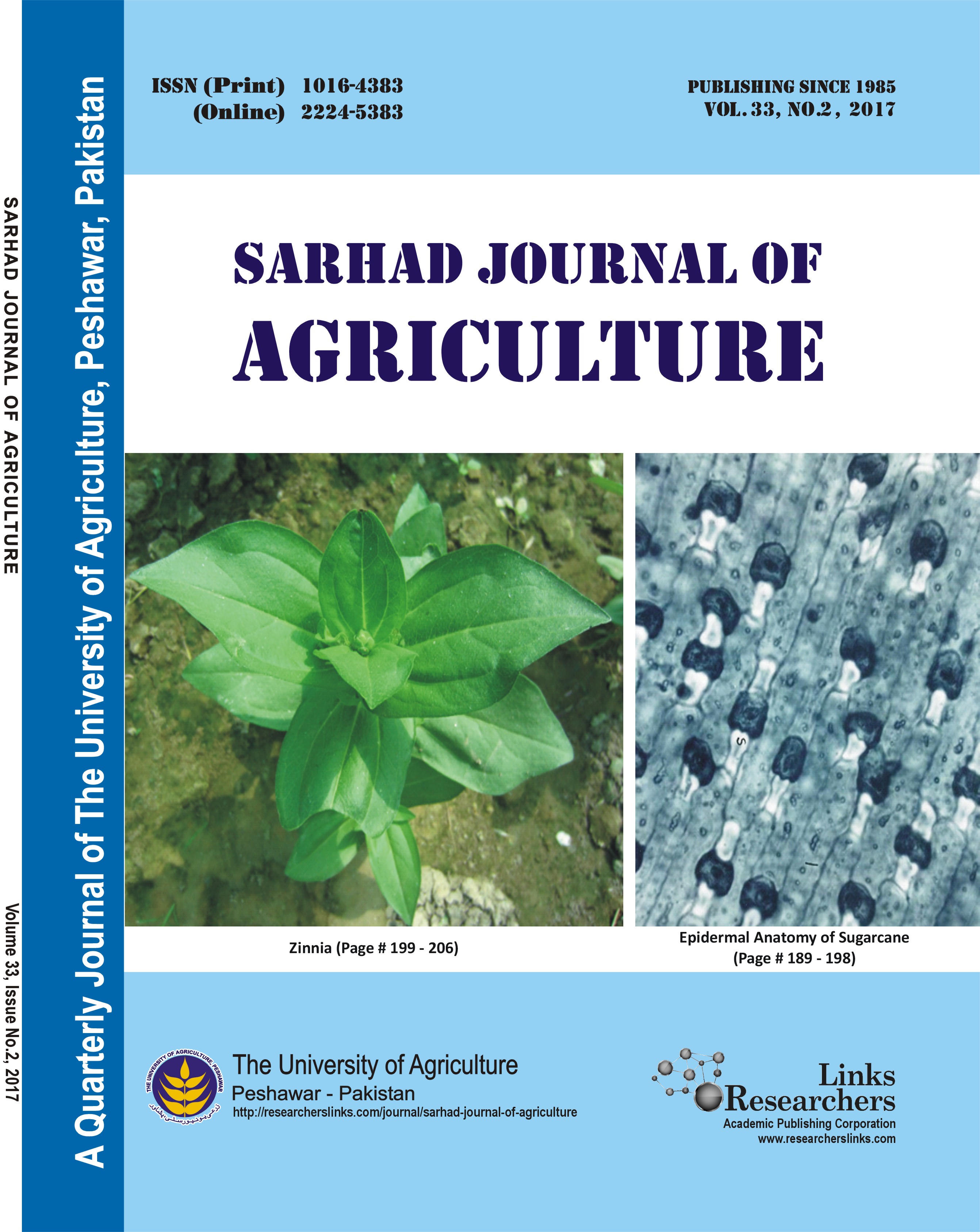A Cross-Sectional Analysis of Food Demand in Khyber Pakhtunkhwa, Pakistan
A Cross-Sectional Analysis of Food Demand in Khyber Pakhtunkhwa, Pakistan
Irfan Ullah*, Abbas Ullah Jan, Muhammad Fayaz, Amjad Ali and Atta Ullah Shah
ABSTRACT
This study aims to examine the food consumption decisions of households in Khyber Pakhtunkhwa Pakistan to understand the demand for different food commodities and to determine the effects of important economic factors such as prices and income. Linear Approximate Almost Ideal Demand System (LA/AIDS) model is used to estimate food demand patterns using the Household Integrated Economic Survey part of Pakistan Social and Living Standard Measurement for the year 2011-12. Fourteen food groups as per HIES including milk, meat, fruits, sugar, vegetables, beverages, wheat and wheat flour, rice, other cereals, pulses, oil and fats, tea and coffee, backed products and other food were considered for the study. The data given in the survey regarding commodity prices, quantity consumed, households’ food expenditures and demographic characteristics were considered for analysis. The uncompensated own price elasticity for milk, fruits, and baked products is greater than unity which suggests that these food groups are highly responsive to their own price change. Prices of these food products should be kept constant. Imposition of any sale tax could create a huge loss in consumption for these commodities. Milk, meat, fruits, other cereals, tea and coffee and baked products were treated as luxuries by the households based on the expenditure elasticities that ranged from 1.05 for milk to 1.33 for tea and coffee. While, those for vegetables, pulses, rice, tea and coffee and other food ranged from 0.28 for beverages to 0.91 for pulses and considered as necessities. As the demand for milk, meat, fruits, other cereals, tea and coffee and backed products are more elastic to total food expenditures (income). Imposition of any income tax on personal household income could reduce their consumption of these food groups in the province. Such policies could result in food security problems for low and middle-income households in Khyber Pakhtunkhwa Pakistan.
To share on other social networks, click on any share button. What are these?







